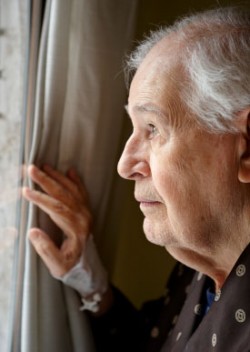What is Sundowning?
Sundowning is not in itself a disorder but a term that refers to a group of symptoms often experienced by individuals with dementia, Alzheimer’s disease, or another type of disorder. Sundowning, also called sundown syndrome, often occurs in the elderly for these reasons. Although it can be problematic, there are ways in which you can attempt to limit the intensity of sundowning in a particular individual.
What are the Symptoms of Sundowning?
Anxiety, confusion, agitation, and restlessness are all symptoms of sundowning. In addition, a person can also become extremely “vocal, aggressive, or delirious,” according to The Ohio State University School of Medicine. These symptoms usually begin to occur during the early evening or late afternoon, when the sun is going down, and then begin to clear up in the daytime. Although some individuals may experience these problems at home, it is more likely that a person in treatment at an inpatient or residential care center for some type of dementia will exhibit these symptoms.
What Causes Sundowning?
There is no official cause that has been found for this cluster of symptoms. However, it may be attributed in some ways to the increased activity that occurs during shift change at a care facility in the evening. This can be very agitating to the patients at one of these facilities, especially those who are suffering from dementia of some kind, and there is a possibility that this change can add to the symptoms. In addition, treatment centers often allow loosely structured time in the evening for patients to be able to do whatever they like, whether that may be to play a game, watch TV, or read. This can be difficult for dementia patients who require more structure.
In addition, “elderly individuals and dementia patients experience disrupted sleep–wake cycles and poor sleep quality, which may lead to psychomotor agitation, confusion, and wandering.” It is important that individuals with this condition are able to sleep well because when restlessness or insomnia occurs, these symptoms are more likely to flare up.
Other things that may work to aggravate an individual’s condition and trigger sundowning symptoms include:
- Exhaustion or fatigue
- Shadows in their room
- Low lights
- Realistic dreams
- Disruption of normal schedule or activities
How Can One Reduce Sundowning?
Though these symptoms often occur in treatment centers, they can possibly happen to someone living at home as well. Therefore, you can attempt to reduce the symptoms by:
- Encouraging the individual to sleep at night and limit daytime sleeping
- Making sure the individual does not have a large intake of caffeine or sugar, especially at night
- Put a nightlight in the individual’s room
- Avoid putting the individual in an unfamiliar setting or, if this is necessary, play soothing music at night and attempt to make the setting more familiar and less shadowy in whatever way possible
- Ask your doctor about the possibility of using melatonin doses to decrease symptoms of sundowning
Want to Learn More About Sundowning and Other Symptoms of Dementia?
By calling 888-647-0051 (Who Answers?) you can learn more about Alzheimer’s disease, dementia, and the other disorders that can lead to sundowning. We can also help you be prepared for the other issues that may occur with these disorders.






